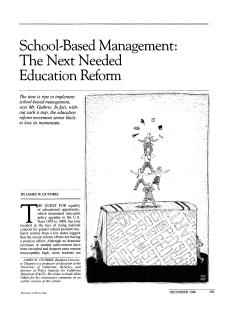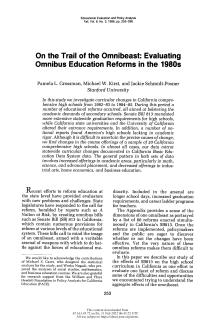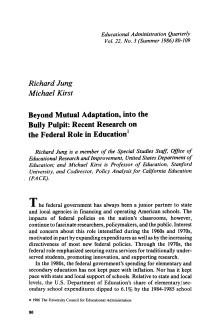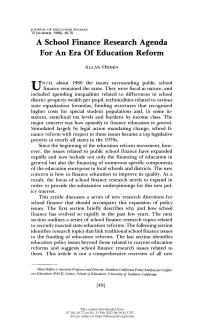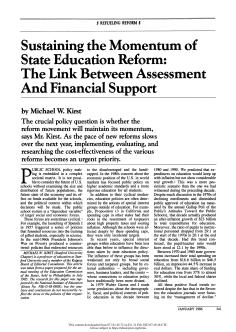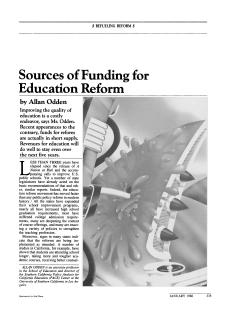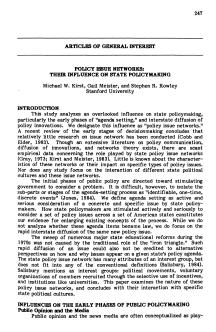The Next Needed Education Reform
Published
Summary
Educational reform in the US has shifted from equal opportunities to greater school productivity. There are some positive results with increased enrolment in academic courses, rigorous textbooks, and raised admission standards for higher education. However, fundamental components of the reform are at odds with the dynamics of organizational revitalization. Without policies that unleash productive local initiatives, the reform is likely to lose momentum, eroding citizens' confidence in schools and generating public resources for them.
Evaluating Omnibus Education Reforms in the 1980s
Published
Summary
The study examines curricular changes in California's high schools from 1982 to 1985, a period of educational reforms aimed at increasing academic rigor. The state mandated more extensive graduation requirements while universities adjusted their entrance requirements. A sample of 20 comprehensive high schools shows increased academic offerings in math, science, and advanced placement, and decreased offerings in industrial arts, home economics, and business education, reflect statewide trends.
Recent Research on the Federal Role in Education
Published
Summary
This article reviews the literature on federal involvement in U.S. elementary and secondary education, from the 1960s to the present day. The federal government's share of spending has decreased since the 1980s, and regulatory pressures have subsided. However, this review identifies trends and themes that have emerged in the literature since the 1980s, encompassing both empirical research and normative commentaries. A literature review primarily focuses on work completed after the early 1980s research syntheses and excludes judicial policies.
Published
Summary
Before the 1970s, public school finance issues were mainly related to spending inequalities. However, since then, the focus has shifted towards financing education to improve its quality. This article suggests new research directions for school finance that address this policy interest, including topics related to state education reforms, traditional school finance issues, and education policy issues beyond current reforms.
The Link Between Assessment and Financial Support
Published
Summary
Public school policy making is embedded in a complex societal matrix. It is not possible to consider the future of U.S. schools without examining the size and distribution of future populations; the future state of the economy and its effect on funds available for the schools; and the political context within which decisions will be made. The public school system is a "dependent variable" of larger social and economic forces.
Published
Summary
Several state legislatures have acted on recommendations to improve U.S. public schools, resulting in a swift and broad education reform movement. States have expanded school improvement programs, increased high school graduation and college admission requirements, deepened course offerings, and strengthened the teaching profession. Indicators of progress include longer school attendance, tougher academic courses, better counseling, higher achievement test scores, and increased teacher pay. This swift and broad movement gives reason for optimism about its success.
Their Influence on State Policy Making
Published
Summary
This report analyzes the role of policy issue networks in early state policymaking stages and interstate diffusion of policy innovations. It defines agenda setting as active and serious consideration of a specific issue by state policymakers and investigates how state policymakers are stimulated to consider policy issues across the U.S. The authors further examine the nature of policy issue networks and their interaction with specific state political cultures, providing insights into the rapid interstate diffusion of new policy issues in the 1970s.
